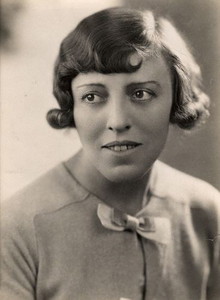A Quote by Markus Zusak
It's insane to be a writer and not be a reader. When I'm writing I'm more likely to be reading four or five books at once, just in bits and pieces rather than subjecting myself to a really brilliant book and thinking, "Well what's the point of me writing anything?" I'm more likely to read a book through when I take a break from writing.
Related Quotes
The process of writing a book is infinitely more important than the book that is completed as a result of the writing, let alone the success or failure that book may have after it is written . . . the book is merely a symbol of the writing. In writing the book, I am living. I am growing. I am tapping myself. I am changing. The process is the product.
That underscored this idea that when we're reading a book or writing a book, you're in an act of co-creation. The reader and the writer are both trying to dress up and present their best selves and then there's that moment, when suddenly, as a reader, you're not exactly you anymore, and likewise, as a writer, you're not really you.
Plate glass... has no beauty of its own. Ideally, you ought not to be able to see it at all, but through it you can see all that is happening outside. That is the equivalent of writing that is plain and unadorned. Ideally, in reading such writing, you are not even aware that you are reading. Ideas and events seem merely to flow from the mind of the writer into that of the reader without any barrier between. I hope that is what is happening when you read this book
You've got to be a good reader. So whatever genre that you're interested in, read a lot of books about it and it's better than any kind of writing class you'll ever take. You will absorb techniques and then in a lot of cases you can just start writing using the style of the book or the author that you admire and then your own style will emerge out of that. Be a diligent reader and then try to write seriously, professionally and approach everything in writing in a professional way.
For me, a lot of Discipline was very personal writing, like writing through and working out being inside this gendered body and also the compulsions of the body, the muting of the mind as driven by the body. My father had died some years ago so he haunts the book too, just floats through it ghost-like. But, the writing of every book is different for me. They are so like living creatures, these books, so I don't know what's carried over into the writing of the next things - except maybe that I'm best when I make my writing practice a routine.
THE WRITER can get free of his writing only by using it, that is, by reading oneself. As if the aim of writing were to use what is already written as a launching pad for reading the writing to come. Moreover, what he has written is read in the process, hence constantly modified by his reading. The book is an unbearable totality. I write against a background of facets.
When I'm writing, I'm thinking, "Well, this might be a book that I'll always be happy with, and certainly readers will be happy with." But another part of me knows that when I'm past the stage of writing, the book is gonna have good things about it, bad things about it - probably more bad than good. I just know that. That's who I am.
There's no such thing as a folk writer. There's no such thing as somebody who's never read a book before suddenly sitting down one day and writing one. You have to learn how to captivate a reader. Right? And I don't mean you have to go to school for it. But if you're - if you pay attention, you can learn it by reading books. And so I feel like I learned a lot by reading books.
I began writing books after speaking for several years and I realize that when you have a written book people think that you're smarter than you really are if I can joke. But it's interesting. People will buy your book and hire you without reading the book just because you have a book and you have a book on a subject that they think is of interest to themselves or e to their company.
Writing books isn't a drastic departure from writing for the stage. I've always written in the long format, five, eight, 10-minute pieces rather than one-liners, so since writing books, the process hasn't changed much. A piece in my live routine can end up as part of one of my HBO specials, and it can also end up in one of the books.
You can't write a book if you've never read a book. And if you've read five books and you try to write a book, your book will mainly encompass the themes and the context of the five books you've read. Now, the more books you read, the more you can bring to a book when you decide to write one. So the more rap I learned, the more I was able to bring to rap when I decided to rap. But this was all subconscious.

































